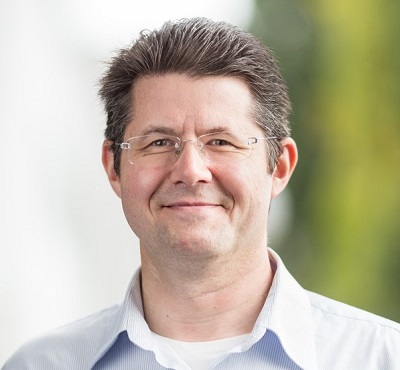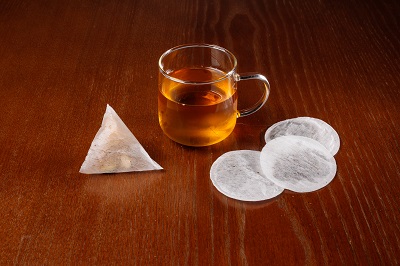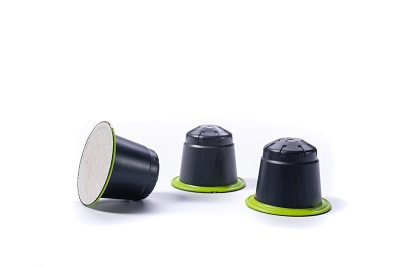The delegates at the Asia Plastics Processing Technology and Innovative Materials Summit 2018 in Jakarta, Indonesia had the opportunity to listen to a presentation by Stefan Barot, Senior Business Director-Asia Pacific of Total Corbion PLA, where he talked about the benefits of biobased polylactic acid (PLA) as a material for a wide range of applications. International Plastics News for Asia (IRNA) gathered his insights on the subject.

Mr. Stefan Barot, Senior Business Director-Asia Pacific, Total Corbion PLA
IRNA: Please tell us about the two companies - Total and Corbion - and how they combined to create a leading player in PLA bioplastics sector.
Mr. Barot: Total and Corbion are two parent companies with complementary strength. Total is the world’s fourth largest oil and gas company. It is engaged in oil and gas, solar and bionergy, commodity and specialty chemicals. On the other hand, Corbion is the world’s largest lactic acid producer, and it is engaged in the manufacture of food ingredients, biochemicals and biomedical. Total Corbion PLA, which is based in the Netherlands, officially launched operations in March 2017 as a 50/50 joint venture between parent companies Total and Corbion
In terms of capacity, Total Corbion PLA is currently building a 75kt/annually facility scheduled to be operational in the second half of 2018. The plant will produce a range of resins from the Luminy® portfolio, including specially developed products for extrusion/thermoforming, injection moulding and fibre spinning to satisfy customer requirements for a wide range of markets from packaging to consumer goods, fibres and automotive.
IRNA: What is the important position played by Total Corbion PLA in the value chain?
Mr. Barot: Along the value chain, Total Corbion PLA works with partners to develop solutions. Our partnerships with key players involves the development of PLA and drives forward its applications. We initiate the PLA polymerisation and support the conversion of PLA so that this material can be utilised by various sectors. The range of applications for PLA is steadily increasing as sustainability becomes a major issue throughout the value chain.

Total Corbion PLA offers PLA polymers for various applications
IRNA: What bioplastics are gaining acceptance in the market today and how is Total Corbion PLA responding to market requirements?
Mr. Barot: In the market today, there are two types of bioplastics. There are biobased polymers which are made from renewable raw material sources (e.g., plants) that include compostable or recyclable (e.g., PLA or PHA) and non-compostable and recyclable (e.g., Bio PE). Another type are polymers that are made from fossil fuels such as compostable, oil-based plastics (e.g., PBAT). However, a certain type of plastics are the so-called oxo-degradable plastics which are popular in certain Asian countries. These types of plastics are traditional fossil fuel based plastics plus oxo-chemicals which fragment the fossil-based plastic in nature to a certain degree resulting in small plastic fragments which will not further degrade and are increasing the damage to the environment.
As seen today, there are many applications for bioplastics. For instance, in the area of non-degradable bioplastics, we have the Bio-PET, initiated by Coca-Cola, which is a drop in for bottles and is currently 30% biobased. Another is Bio-PE, which is a drop in for PE packaging. Another is PEF, which is a new kind of polymer with improved barrier properties when compared to, for example, PET.
In terms of application, flexible packaging is the biggest market for biodegradable plastics with 44% of the supply for such type of plastic going into the production of flexible packaging products. Rigid packaging is next at 14.8% followed by agriculture and horticulture sector at 12.5%. The rest of the bioplastic supply is absorbed by consumer goods, textiles, building & construction, automotive & transport sectors.
IRNA: What makes PLA bioplastics an ideal option today?
Mr. Barot: PLA is a biobased, biodegradable polymer obtained by fermenting renewable resources (sugar or starch) to produce lactic acid. PLA is mainly used for food packaging, disposable tableware and textiles, as well as in numerous other industries such as oil and gas, electronics, automotive and 3D printing. In the market today, the advantages of using bioplastics, such as PLA, have become more prominent as manufacturers of packaging and other products acknowledge that consumers are getting more environment-conscious. PLA is projected to post growth rate of 10 to 15% annually up to 2025. Comparing carbon footprint emissions from production of common polymers indicates that Luminy® PLA from Total Corbion PLA has the lowest carbon emission per kilogram polymer (cradle to gate) as compared with other materials, such as PS, PET, PP and LDPE.
In food packaging, PLA offers such benefits as compostability which also makes it an ideal material for dual use shopping bags that can thereafter be used to collect food waste in the home. The material is biodegradable and compostable conforming to EN 13432, and it is food contact approved and excellent for fresh fruit/vegetable packaging. PLA is also ideal for high heat food serviceware because of its heat resistance of up to 100°C so it can withstand boiling water and has excellent processing economics aside from being biobased and recyclable. For thermoformed coffee cups, PLA has been well accepted due to its high heat resistance, recyclability, good processing economics, aside from the fact that it can be processed on existing PS lines.
Another popular product where PLA has become an important option is for injection moulded coffee capsules. PLA offers producers of coffee capsules such benefits as compostability, high heat resistance, good barrier properties and processing economics. PLA is also ideal for nonwoven tea bags and coffee pads as this biobased material is resistant to high heat, and is aroma neutral with soft and silky touch.
IRNA: What is Life Cycle Assessment (LCA) and how does this support the transition towards PLA bioplastic use?
Mr. Barot: Life Cycle Assessment (LCA) is a methodology for the systematic and quantitative evaluation of the environmental performance of a product through all stages of its life cycle, from raw material extraction through production, use and disposal (“cradle to grave”). An LCA can be used as scientific basis to identify improvement opportunities, to compare different products and support decision making in new product and process development.
Environmental impacts that are typically evaluated in an LCA study include greenhouse gas emissions, water use, land use and use of non-renewable energy. LCA is being used to enable our customers to make conscious choices. Using this data, we can work side by side with customers to support them on the improvement of their environmental footprint and on the substantiation of their sustainability claims. We have performed an LCA for our PLA production process in Thailand. Simply put, the LCA conducted indicates favourable results for PLA produced by Total Corbion PLA.

IRNA: Please tell us about the Luminy® portfolio.
Mr. Barot: Luminy® is a range of specially developed PLA polymer resins that includes both high heat and standard PLA grades. It is an innovative material that is used in a wide range of markets from packaging to consumer goods, fibres and automotive.
Luminy® is compliant with the most relevant regulations and requirements related to bioplastics. It has met necessary standards and has been approved for EU food contact applications and EN 13432 standard for industrial composting. It is 100% biobased as it is made from European sugar beet and Thai sugarcane which are always GMO-free crops. Another important aspect is that it has reduced carbon footprint (based on peer reviewed LCA study).
Total Corbion PLA has an Application Development Team that is ready to support technical enquiries related to high heat PLA, standard PLA and PLA compounded blends for any applications.
Nike Phantom Vision DF FG
 iConnectHub
iConnectHub
 Login/Register
Login/Register Supplier Login
Supplier Login


























